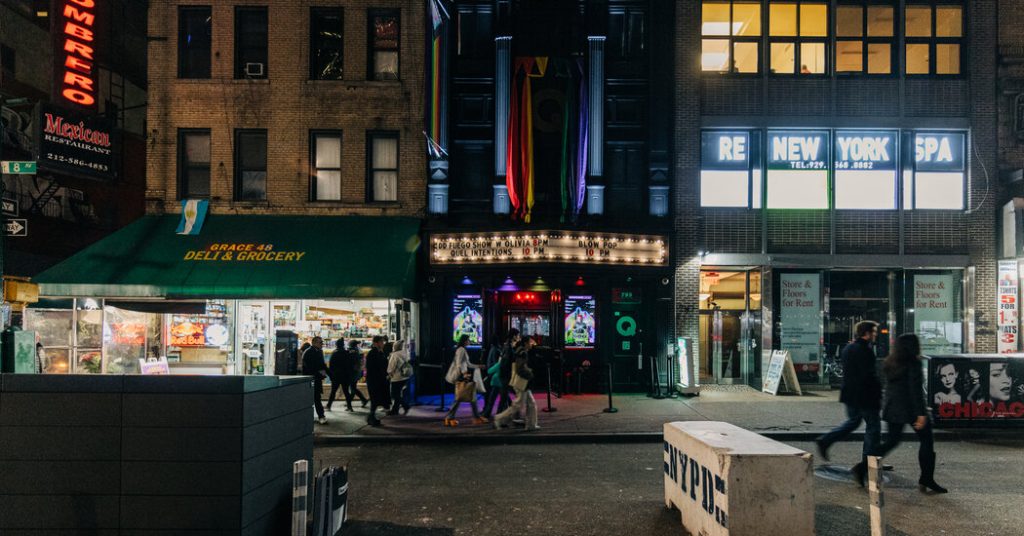The bustling nightlife of post-pandemic New York City became a hunting ground for a group of men who targeted unsuspecting patrons of gay bars and nightclubs, drugging and robbing them, and in two tragic instances, causing their deaths. The victims, Julio Ramirez, a 25-year-old social worker, and John Umberger, a 33-year-old political consultant, were both found dead in 2022, their lives tragically cut short by a “deadly conspiracy” that sent shockwaves through the city’s LGBTQ+ community. Prosecutors allege that the perpetrators, driven by greed and the desire for a “jackpot,” befriended their targets, plied them with drug-laced drinks, and then robbed them while they were incapacitated. The defendants, Jayqwan Hamilton, Robert DeMaio, and Jacob Barroso, now face murder and robbery charges in a trial that has brought the families of the victims face-to-face with the men accused of taking their loved ones.
The prosecution’s opening statements painted a chilling picture of calculated predation. They detailed how the group allegedly selected their targets, established rapport, and then administered the fatal intoxicants. After rendering their victims unconscious, they would systematically drain their bank accounts and engage in lavish spending sprees, using stolen credit cards and online payment platforms like Zelle. The prosecution intends to present a wealth of evidence, including video surveillance, financial records, and cellphone data, to meticulously reconstruct the group’s movements and demonstrate their coordinated efforts. The evidence, they argue, will irrefutably link the defendants to the crimes and expose their callous disregard for human life.
The defense, however, contends that the prosecution’s narrative is merely a “theory” based on accusations, not concrete evidence. They urge the jury to remain impartial and refrain from drawing conclusions until the full story unfolds in court. While acknowledging the tragic nature of the deaths, the defense lawyers insist that their clients are not guilty of murder. They will likely challenge the prosecution’s interpretation of the evidence and attempt to raise reasonable doubt about the defendants’ intent and their direct involvement in the deaths. The trial promises to be a complex and emotionally charged legal battle, with the fate of the accused hanging in the balance.
The chilling details of the case have brought renewed attention to the dangers of drug-facilitated crimes, particularly within the LGBTQ+ community. The fear of being unknowingly drugged and robbed, or even worse, has cast a shadow over the once-vibrant nightlife. The victims’ families, who initially believed their loved ones had died from accidental overdoses, became suspicious upon discovering unexplained withdrawals from their bank accounts. Their persistence in demanding further investigation ultimately led to the unraveling of the alleged criminal enterprise and the subsequent arrests. Now, as they sit in the courtroom, they seek justice for the sons they lost.
The trial also features the testimony of a surviving victim, who recounted a harrowing experience eerily similar to those of Ramirez and Umberger. The witness, whose identity has been protected, described waking up in his hotel room with no memory of how he got there, missing belongings, and unexplained charges on his accounts. This testimony serves to underscore the alleged pattern of behavior employed by the defendants and strengthens the prosecution’s case. It highlights the vulnerability of individuals in social settings and the devastating consequences of such predatory acts.
The trial continues, with the jury tasked with sifting through the evidence and determining the guilt or innocence of the accused. The emotional toll on the victims’ families is palpable, as they grapple with the loss of their loved ones and seek closure. For them, the trial represents not only a quest for justice but also an opportunity to honor the memory of their sons, who were tragically robbed of their futures. The outcome of this case will have far-reaching implications, not only for the defendants but also for the safety and security of the LGBTQ+ community and the wider public, serving as a stark reminder of the dangers lurking in the shadows of even the most vibrant cityscapes.











